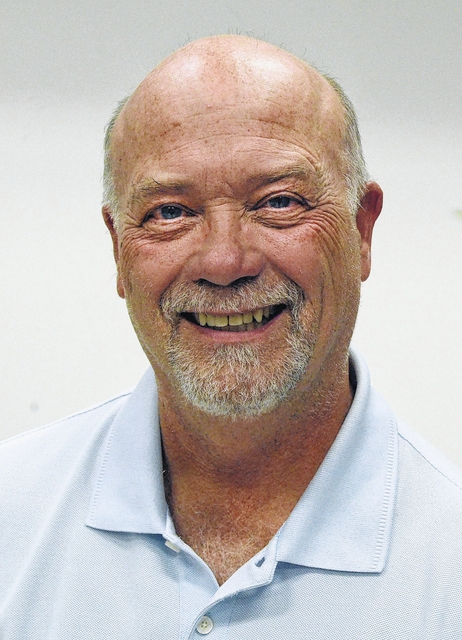While I hesitate to call the city that birthed me my hometown given the fact that I left when I was a week short of my seventh birthday when my father took a job transfer, for years, I had no problem reminding people that I was a Chicagoan in my earliest days.
Despite the early Illinois departure and arrival here in Ohio, the summer before my second-grade year, I still do have a small anthology of memories that are purely Chicago in nature, especially my time in Oak Lawn, a suburb southwest of Passavant Memorial Hospital on Superior Street, where my life’s first chapter was written.
Really, I think for most of us who didn’t remain anchored where we were born, there remains a bond, even long after we’ve flown from our proverbial birth nests. And, I think in many cases, there’s a certain pride that comes with our first city.
I do know that in my twenties, thirties and forties, I made frequent trips back to Chicago, often with family to see a play and often for early-June baseball trips with my National Pastime-loving pals to see the Cubs play at Wrigley on the north side and the White Sox play at Comiskey Park on the south side.
On those trips we would often stay in The Loop, often on LaSalle Street, and thought nothing of cabbing it to Rush St., Division St. and Michigan Ave. to immerse ourselves in that famous Chicago nightlife and knock a few back in places like The Lodge and the Billy Goat Tavern and also look for some of that delish deep-dish Chicago style pizza after our diurnal baseball fun was over, often not arriving back to our hotel rooms until after midnight.
I remember reveling at the sights and sounds of Navy Pier at twilight and always made it a point to hit Harry Caray’s on Ontario Street to scrutinize the myriad of baseball photos on the walls throughout the establishment and grab some food and beverage. On one trip, we were thrilled to find out that the famous play-by-play man for whom the bar is named was there and even more thrilled when we got a chance to meet and speak with him.
However, my childhood days and even my last baseball trip some 21 years ago on my fiftieth-birthday weekend are so very long ago, and the city I used to take some measure of pride in claiming has most certainly changed for the worse with a dramatic increase in violent crime. Nowadays, to be honest, I tell fewer and fewer people where I was born.
This past September I read a story online about McDonald’s CEO Chris Kempczinski, who sounded his own alarm about crime and homelessness in the city where the fast-food giant is headquartered. The CEO bemoaned the fact that it is becoming increasingly difficult to recruit talent to run the over 400 McDonald’s spread across the city as well as to recruit the corporate talent to relocate to Chicago to work in the headquarters.
He spoke of the rampant violent crime — crime at times committed in his restaurants — and also of the negative effects of homeless loitering and drug overdoses, often occurring in his restaurants as well.
Kempczinski went on to speak of other corporations once headquartered in the city that have moved, such as Caterpillar, Boeing and Citadel Securities. Said the CEO, who was speaking to a gathering of the Economic Club of Chicago, “The fact is that there are fewer large companies headquartered in Chicago this year than last year. There are fewer this month than last month.”
Despite Chicago Mayor Lori Lightfoot’s dismissal of Kempczinski’s claims, saying at a news conference that the CEO should educate himself before he speaks, it really is hard to dispute anything he said about the sorry state of the city as far as homelessness and especially crime.
Chicago Police Superintendent Dave Brown painted a bleak picture when he summed up the city’s massive problem with gang violence, saying he believed there are in Chicago over 117,000 gang members (and) 55 major gangs along with 2,500 subset factions that are all internally in conflict with each other and in conflict with other rival gangs. He ended emphatically by saying, “There’s several hundred gang conflicts every day in Chicago. Every day.”
While surely large metro cities are going to have larger issues with crime than smaller towns, when it comes to Chicago, it has become known as one of the murder capitals of the world, according to Michael Snyder, author of the book Lost Prophecies of the Future of America.
When I read such things about my birth city and read of the grim realities of the often staggeringly high volume of weekend shootings on Monday mornings, it truly saddens me. After all, I think we all really do want to be proud of the city where we drew our first breaths.
As for those earliest memories of my inaugural Chicago times and as well as those wonderful memories of my trips back to Chicago, especially of those baseball trips with my mates, sadly, they may very well be my last memories of my first city.
John Grindrod is a regular columnist for The Lima News, a freelance writer and editor and the author of two books. Reach him at [email protected].







